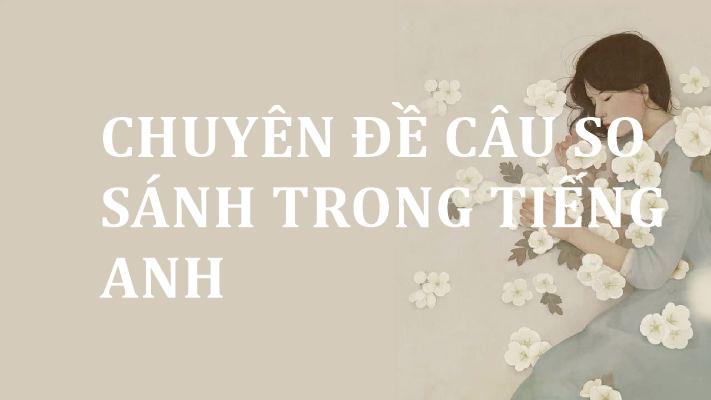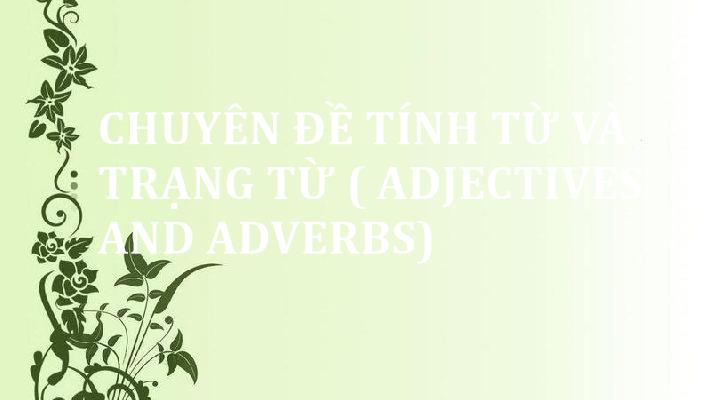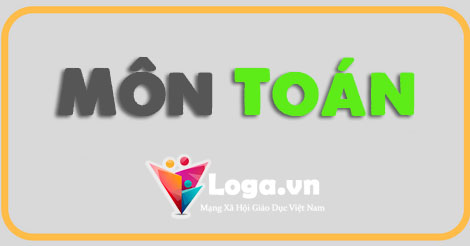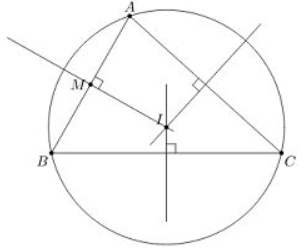GRADE 8
UNIT 2: LIFE IN THE COUNTRYSIDE
I.New words:
1.beehive (n) /biːhaɪv/: tổ ong
The village was required to pay taxes on its goats, beehives and its olive press.
2.brave (adj) /breɪv/: can đảm
It was a brave decision to quit her job and start her own business.
3.buffalo-drawn cart (n) /ˈbʌfələʊ-drɔːn kɑːt/: xe trâu kéo
4.cattle (n) /ˈkætl/: gia súc
These cattle are being fattened up for slaughter.
5.collect (v) /kəˈlekt/: thu gom, lấy
6.convenient (adj) /kənˈviːniənt/: thuận tiện
7.disturb (v) /dɪˈstɜːb/: làm phiền
Please don't disturb your sister - she's trying to do her homework.
8.electrical appliance (n) /ɪˈlektrɪkl əˈplaɪəns/: đồ điện
9.generous (adj) /ˈdʒenərəs/: hào phóng
10.ger (n) /ger/: lều của dân du mục Mông Cổ
11.Gobi Highlands /ˈgəʊbi ˈhaɪləndz/: Cao nguyên Gobi
12.grassland (n) /ˈɡrɑːslænd/: đồng cỏ
13.harvest time (n) /ˈhɑːvɪst taɪm/: mùa gặt
14.herd (v) /hɜːd/: chăn dắt
An old woman was herding the goats.
15.local (adj, n) /ˈləʊkl/: địa phương, dân địa phương
16.Mongolia (n) /mɒŋˈɡəʊliə/: Mông cổ
17.nomad (n) /ˈnəʊmæd/: dân du mục
Ex: a tribe of Somalian desert nomads
18.nomadic (adj) /nəʊˈmædɪk/: thuộc về du mục
19.paddy field (n) /ˈpædi fiːld/: đồng lúa
20.pasture (n) /ˈpɑːstʃə(r)/: đồng cỏ
The sheep were grazing on the lush green pastures.
21.pick (v) /pɪk/: hái (hoa, quả…)
22.racing motorist (n) /ˈreɪsɪŋ məʊtərɪst/: người lái ô tô đua
23.vast (adj) /vɑːst/: rộng lớn, bát ngát
The amount of detail the book contains is vast.
II.Grammar:
1.Phân biệt tính từ ngắn tính từ dài,trạng từ ngắn và trạng từ dài
a. Phân biệt tính từ ngắn & tính từ dài:
Tính từ ngắn (Short adjectives)
(Ký hiệu trong bài này là: S-adj)
- Là tính từ có một âm tiết
Ví dụ:
- red, long, short, hard,....
Tính từ dài (Long adjectives)
(Ký hiệu trong bài này là: L-adj)
- Là tính từ có từ 2 âm tiết trở lên
Ví dụ:
- beautiful, friendly, humorous, ....
b. Trạng từ ngắn & Trạng từ dài:
Trạng từ ngắn (Short adverbs)
(Ký hiệu trong bài này là: S-adv)
- Là trạng từ có một âm tiết
Ví dụ:
- hard, fast, near, far, right, wrong, ...
Trạng từ dài (Long adverbs)
(Ký hiệu trong bài này là: L-adv)
- Là trạng từ có 2 âm tiết trở lên.
Ví dụ:
- quickly, interestingly, tiredly, ...
2. SO SÁNH BẰNG VỚI TÍNH TỪ VÀ TRẠNG TỪ
1. So sánh bằng với tính từ và trạng từ:
Cấu trúc:
S1 + V + as + adj/adv + as + S2 + auxiliary V
S1 + V + as + adj/ adv + as + O/ N/ pronoun
Ví dụ:
- She is as tall as I am = She is as tall as me. (Cô ấy cao bằng tôi.)
- He runs as quickly as I do = He runs as quickly as me. (Anh ấy chạy nhanh như tôi.)
- Your dress is as long as my dress = Your dress is as long as mine. (Váy của bạn dài bằng váy của tôi.)
2. So sánh hơn với tính từ và trạng từ.
* So sánh hơn với tính từ ngắn và trạng từ ngắn:
Cấu trúc:
S1 + S-adj + er/ S-adv- er + than + S2 + Axiliary V
S1 + S-adj + er/ S-adv- er + than + O/ N/ Pronoun
Trong đó: S-adj-er: là tính từ ngắn thêm đuôi "er"
S-adv-er: là trạng từ ngắn thêm đuôi "er"
S1: Chủ ngữ 1 (Đối tượng được so sánh)
S2: Chủ ngữ 2 (Đối tượng dùng để so sánh với đối tượng 1)
Axiliary V: trợ động từ
O (object): tân ngữ
N (noun): danh từ
Pronoun: đại từ
Ví dụ:
- This book is thicker than that one. (Cuốn sách này dày hơn cuốn sách kia.)
- They work harder than I do. = They work harder than me. (Họ làm việc chăm chỉ hơn tôi.)
* So sánh hơn với tính từ dài và trạng từ dài:
Cấu trúc:
S1 + more + L-adj/ L-adv + than + S2 + Axiliary V
S1 + more + L-adj/ L-adv + than + O/ N/ Pronoun
Trong đó: L-adj: tính từ dài
L-adv: trạng từ dài
Ví dụ:
- He is more intelligent than I am. = He is more intelligent than me. (Anh ấy thông minh hơn tôi.)
- My friend did the test more carefully than I did. = My friend did the test more carefully than me. (Bạn tôi làm bài kiểm tra cẩn thận hơn tôi.)
3. So sánh hơn nhất đối với tính từ và trạng từ.
+ So sánh hơn nhất đối với tính từ ngắn và trạng từ ngắn:
Cấu trúc:
S + V + the + S-adj-est/ S-adv-est
Ví dụ:
- It is the darkest time in my life. (Đó là khoảng thời gian tăm tối nhất trong cuộc đời tôi.)
- He runs the fastest in my class. (Anh ấy chạy nhanh nhất lớp tôi.)
+ So sánh hơn nhất đối với tính từ dài và trạng từ dài:
Cấu trúc:
S + V + the + most + L-adj/ L-adv
Ví dụ:
- She is the most beautiful girl I've ever met. (Cô ấy là cô gái xinh nhất mà tôi từng gặp.)
- He drives the most carelessly among us. (Anh ấy ấy lái xe ẩu nhất trong số chúng tôi.)
III - CHÚ Ý:
+ Một số tính từ có 2 âm tiết nhưng có tận cùng là "y, le, ow, er" khi sử dụng ở so sánh hơn hay so sánh hơn nhất nó áp dụng cấu trúc so sánh hơn của tính từ ngắn.
Tính từ So sánh hơn So sánh hơn nhất
Happy -> happier -> the happiest
Simple -> simpler -> the simplest
Narrow -> narrower -> the narrowest
Clever -> cleverer -> the cleverest
Ví dụ:
- Now they are happier than they were before. (Bây giờ họ hạnh phúc hơn trước kia.)
Ta thấy "happy" là một tính từ có 2 âm tiết nhưng khi sử dụng so sánh hơn, ta sử dụng cấu trúc so sánh hơn của tính từ ngắn.
+ Một số tính từ và trạng từ biến đổi đặc biệt khi sử dụng so sánh hơn và so sánh hơn nhất.
Tính từ/ Trạng từ So sánh hơn So sánh hơn nhất
Good/ well -> better -> the best
Bad/ badly -> worse -> the worst
Much/ many -> more -> the most
a little/ little -> less -> the least
far -> farther/ further -> the farthest/ furthest
IV - SO SÁNH KÉP
1. Cấu trúc so sánh "....càng ngày càng ..."
* Đối với tính từ ngắn và trạng từ ngắn
S-adj-er/ S-adv-er and S-adj-er/ S-adv-er
Ví dụ:
- My sister is taller and taller. (Em gái tôi càng ngày càng cao.)
- He works harder and harder. (Anh ấy làm việc càng ngày càng chăm chỉ.)
* Đối với tính từ dài và trạng từ dài
More and more + L-adj/ L-adv
Ví dụ:
- The film is more and more interesting. (Bộ phim càng ngày càng thú vị.)
- He ran more and more slowly at the end of the race. (Anh ấy chạy càng ngày càng chậm ở phần cuối cuộc đua.)
2. Cấu trúc so sánh "càng .... càng..."
* Đối với tính từ ngắn và trạng từ ngắn:
The + S-adj-er/ S-adv-er + S + V, the + S-adj-er/ S-adv-er + S + V
Ví dụ:
- The cooler it is, the better I feel. (Trời càng mát mẻ, tôi càng cảm thấy dễ chịu).
- The harder he works, the higher salary he gets.
* Đối với tính từ dài và trạng từ dài
The + more + L-adj/ L-adv + S + V, the + more + L-adj/ L-adv + S + V
Ví dụ:
- The more carefully he studies, the more confident he feels. (Anh ấy càng học cẩn thận, anh ấy càng thấy tự tin.)
V - SO SÁNH BỘI (GẤP BAO NHIÊU LẦN)
Số lần (half/ twice/ three times/...) + many/much/ adj/ adv+ as + O/ N/ Pronoun
Ví dụ:
- She works twice as hard as me. (Cô ấy làm việc chăm chỉ gấp 2 lần tôi.)
- This road is three times as long as that one. (Con đường này dài gấp 3 lần con đường kia.)
Exercise1: Some of the comparisons in these sentences are incorrect. Underline and correct the mistakes.
1.The cost of living in the countryside is more low than in the City.
2.In general, putting up a tent is not as difficult than building a house.
3.Harvest is the busiest time of year in the countryside.
4.Dogs are much more better than human beings at detecting smells.
5.Life in a big city is more exciting than life in a small town.
6.This cottage is near to the main road than that red one.
7.The paddy fields in the mountains are usually not as large as those in the lowlands.
8.The path through Dead Valley is the most dangerous in my countrỵ.
Đ/a:1. Low => lower
2. as difficult than => as difficult as
3. Correct
4. more better than => better than
5. Correct
6. near to => nearer to
7. Correct
8. Correct
Exercise 2: Use verb in the brackets in their correct forms of comparison to completethe sentences
1.A village is much _________ a city in size. (small)
2.Of the three types of cattle in the Mongolian desert, the sheep is _________. (slow)
3.A City has _________ activities than the countryside. (interesting)
4.The City offers more services. It's much _________ the countrỵside. (convenient)
5.My village has onlỵ 1,200 people. It's not _________ the City. (crowded)
6.In the countryside, harvest time is often _________ and _________ time. (busy, hard)
7.Some people think that country folk are _________ cityvpeople. (friendlỵ)
8 Which one is _________, the City or the countryside? (noisy)
Đ.a:1. smaller than 2. the slowest 3. more/ less interesting 4. more convenient than 5. as crowded as 6. the busiest, the hardest 7. more friendly than 8. Noisier
Exercise 3: Rewrite the following sentences without changing original meanings use the right comparative form of the adverbs in blackets:
1.The Eagle team performed more successfully than the Lion team. (successfully)
The Lion team performed
…………………………………
2.In the countryside,children play more freely than in the City. (freely)
In the City, children……………………………………………..
3.Our gers are now better equipped than in the past. (badly)
In the past, our gers………………………………….
4.A sport car goes faster than an ordinary car. (slowly)
An ordinary car goes………………………………
5. Business person travels more expensively than a tourist. (cheaply)
A tourist travels……………………………………….
Key:
1.The Lion team performed less successfully than The Eagle team .
2. In the City, children less freely than in the countryside.
3. In the past, our gers were worse equipped than now.
4. An ordinary car goes more slowly than a sport car .
5. A tourist travels more cheaply than a business person.







